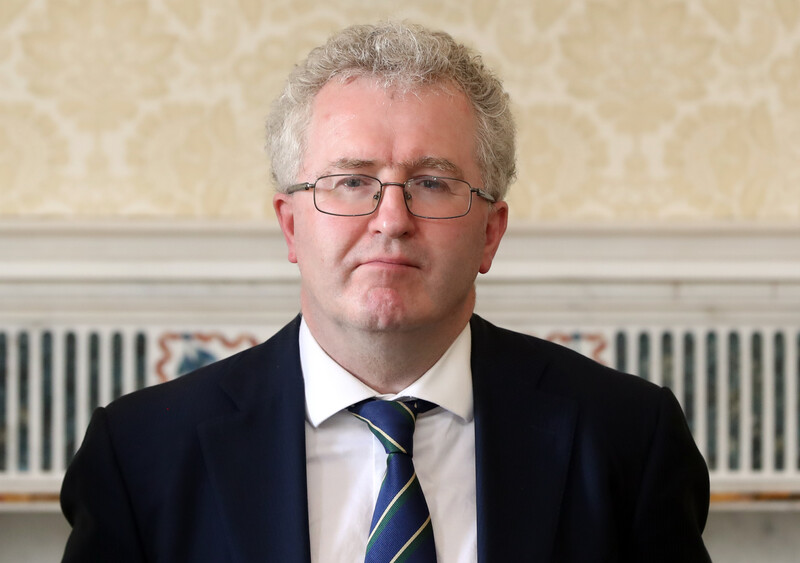The Electronic Intifada 23 December 2020

Seamus Woulfe, a disgraced judge, wants Ireland to allow imports from Israel’s illegal settlements.
ZUMA PressIreland’s government is signaling that it will rely on advice from a disgraced judge to keep blocking a proposed ban on imports from Israel’s illegal settlements.
The Occupied Territories Bill – as the proposed ban is known – was placed once again on the legislative schedule for the Dáil, the lower house in the national parliament, earlier this month.
To “justify” his stance, Coveney has continuously cited advice received from Seamus Woulfe, then Ireland’s attorney general, in 2018.
Woulfe, who has subsequently been appointed a Supreme Court judge, has been embroiled in controversy for much of this year. During the summer he attended a golf dinner that violated guidelines aimed at reducing the spread of COVID-19.
Although a government minister and an EU commissioner resigned from their posts for attending the same event, Woulfe has refused to do so. He retains his Supreme Court post despite how its top judge has accused him of bringing the law into disrepute.
The Electronic Intifada asked Ireland’s foreign ministry if fresh legal advice on the Occupied Territories Bill will be sought given that Woulfe is no longer attorney general and that his reputation has been damaged.
The ministry did not respond to that question but instead referred to the most recent public comments on the bill made by Coveney.
In those comments – dated 26 November – Coveney claimed the “clear legal advice” was that the bill “would not be compatible with EU law.”
The only legal advice that Coveney is known to have received on the bill is the 2018 briefing from Woulfe.
Inadequate condemnation
Frances Black, the lawmaker who originally put forward the bill, took issue with Coveney’s claim.
“I know that the outgoing government used the argument that trade policy was a matter for the European Union collectively, and that we cannot take unilateral action against settlement goods,” she said. “But we have had experts in European law confirm that the settlements violate international law and that we have an obligation to ban settlement goods.”
Coveney’s November comments came just a few weeks after he used relatively strong terms to criticize Israel’s demolition of a Palestinain Bedouin community in the occupied West Bank. He called the demolition a “brutal and violent act.”
Black, however, deemed such statements as inadequate.
“I don’t believe condemnations are enough without concrete action,” she said.
At Coveney’s insistence, the Occupied Territories Bill was not included in the program for the ruling coalition formed after the February election.
Unlike Coveney’s right-wing Fine Gael, the two other parties in the coalition – Fianna Fáil and the Greens – have previously supported the bill.
Yet lawmakers with those two parties have indicated that they would not vote for a ban on settlement goods now that they are in government.
Micheál Martin, the Fianna Fáil leader and taoiseach (prime minister), even echoed Coveney’s claims about the bill earlier this year. This represented a complete U-turn on his party’s position.
Thomas Pringle, an independent lawmaker, proposed that the bill be placed on the schedule for the current parliamentary term.
“To be honest with you, I would not be too optimistic about the bill getting enacted into law,” Pringle said. “Fianna Fáil will say one thing in opposition and then do the exact opposite when they get into government. So will the Green Party.”
While the prospects for the bill appear dim, Pringle wishes to raise greater awareness about how Israel manages to flout international law without facing any consequences.
“No Irish government wants to do anything to upset the Israelis, unfortunately, even if it means upholding international law,” he said. “I would love to see a close examination of the relationship the Israelis have with the EU. Israel seems to be effectively a member of the EU. That’s why Ireland would never do anything that would upset or annoy the Israeli government.”
Ciaran Tierney is an award-winning blogger and a former newspaper journalist. Twitter: @ciarantierney. Website: ciarantierney.com.





